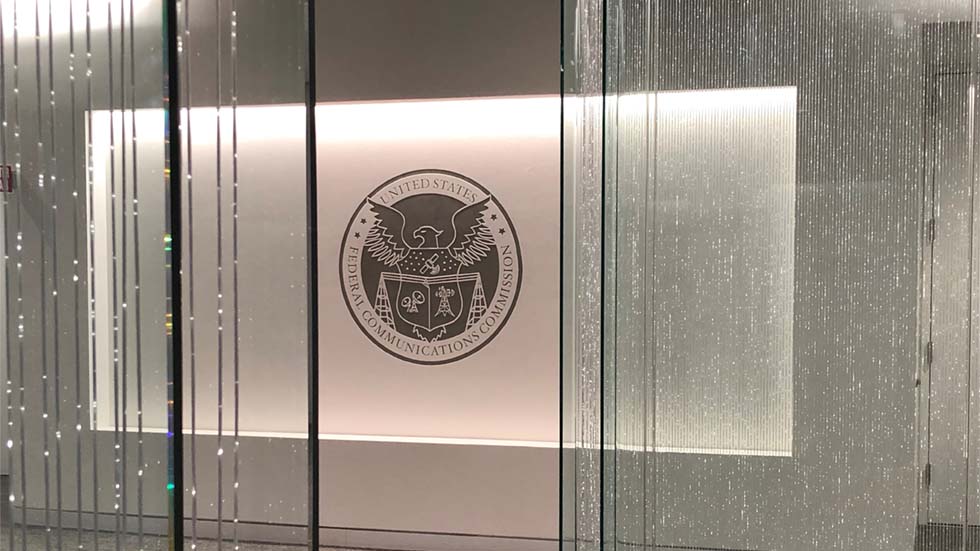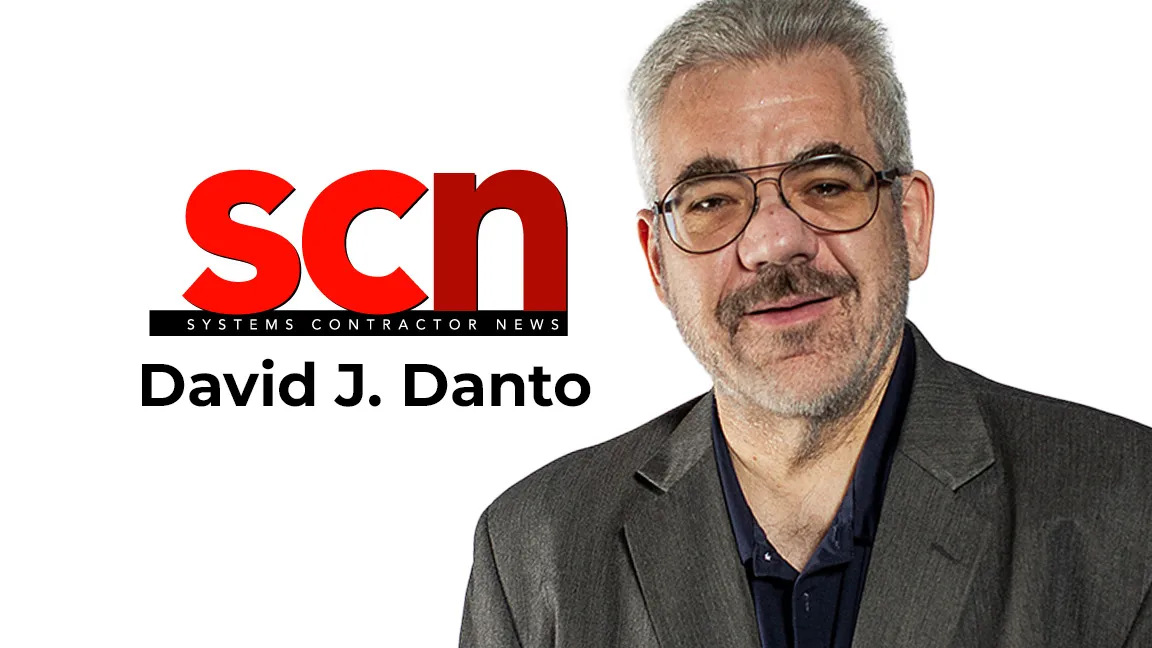Tentative Agenda for FCC’s Sept. Open Meeting Includes Broadcast Ownership Rules
Commissioners will also consider items designed to speed up buildup of broadband infrastructure, wireless regulations and deletion of some wireline rules

The professional video industry's #1 source for news, trends and product and tech information. Sign up below.
You are now subscribed
Your newsletter sign-up was successful
WASHINGTON—Federal Communications Commission Chair Brendan Carr has announced a tentative agenda for the September Open Commission Meeting scheduled for Tuesday, September 30, 2025.
For broadcasters, the highlight of the meeting will be a Notice of Proposed Rulemaking that would advance the Commission’s quadrennial regulatory review of its broadcast ownership rules and seek public comment on whether, given the current state of the media marketplace, the FCC should retain, modify, or eliminate any of these rules.
As part of the 2022 Quadrennial Review, the FCC is proposing to consider three rules: “Local Radio Ownership Rule, the Local Television Ownership Rule, and the Dual Network Rule.”
As previously reported Carr announced on September 8, that the agency would consider the rules this month. The materials released on Sept. 9 for the Open Meeting provide many more details on what the agency will consider.
The proposed NPR makes no mention of national ownership caps, which broadcasters want repealed and the FCC is considering in a separate docket.
In the runup to the meeting the agency released a proposed NPR that the Commissioners will consider. The proposed NPR isn’t considered an official action by the agency until it is voted on and can be modified before the vote.
In its current form, the proposed NPR said that the FCC will examine the current ownership rules in light of whether changes in the marketplace require that some rules be modified or eliminated. As part of that it will explore a variety of changes in the media landscape, including the rise of streaming, digital media, the changing advertising market and other factors. “
The professional video industry's #1 source for news, trends and product and tech information. Sign up below.
“This periodic review aims to ensure that the media ownership rules continue to serve the public interest in light of new and emerging technologies and ever-evolving marketplace conditions,” the proposed NPR said.
In doing so, the FCC said “the Commission historically has reviewed its ownership rules with the express purpose of determining whether such rules remain necessary in the public interest. This analysis has focused principally on whether the particular rule continues to advance the agency’s traditional policy goals of competition, localism, and viewpoint diversity. Where there is a conflict between competing goals, the Commission has weighed the potential effects to determine whether, on balance, the rule continues to serve the public interest. As such, the public interest analysis under section 202(h) has been conducted as a multi-factor review in which no one factor is controlling.”
In the new review the FCC indicated its willingness to question that approach. The proposed NPR said “we seek comment on the three traditional policy goals of competition, localism, and viewpoint diversity. This periodic review aims to ensure that the media ownership rules continue to serve the public interest in light of new and emerging technologies and ever-evolving marketplace conditions.”
Notably, the proposed NPR said “we seek comment on whether there are new ways to think about or define these goals and how best to balance them in the course of this review. We also seek comment on how to measure localism, viewpoint diversity, and competition. Have changes in the marketplace rendered certain of these goals obsolete in the context of this review? If so, how should we refine our analysis to reflect these changes?”
In addition to seeking comments on a wide variety of issues relating to such issues as the public interest, localism, competition and viewpoint diversity, the FCC indicated it would be examining the power of the four major broadcast TV networks versus their affiliates.
In the newest review, the agency said it would seek "comment on whether, and if so how, the rise of online video distribution platforms in recent years has altered the traditional network-affiliate relationship. As noted above, consumer access to online video distributors is now largely ubiquitous, and this development has enabled broadcast networks, including Big Four networks, to achieve widespread distribution of program content without relying on their local network affiliates. To what extent, if at all, has the ability of broadcast networks to bypass local affiliates as vehicles for content distribution tilted the balance of bargaining power in favor of broadcast networks? How has this development, or other marketplace developments, affected local network affiliates and consumers? Are there examples of online video distribution platforms partnering with local broadcasters? What are the implications of such developments for the Dual Network Rule and its localism rationale?”
The proposed NPR can be found here.
The FCC described the rest of the tentative agenda for the Sept. meeting as follows:
- "Accelerating Wireline Infrastructure Buildout – The Commission will consider a Notice of Inquiry that would examine whether state and local statutes, regulations, and legal requirements have an unlawful prohibitive effect on the provision of wireline telecommunications services, particularly through the imposition of excessive delays and fees that impede infrastructure deployments and disincentivize investments in them. (WC Docket No. 25-253)
- "Freeing Wireless Infrastructure from Unlawful Regulatory Burdens – The Commission will consider a Notice of Proposed Rulemaking that advances its Build America Agenda by seeking comment on reforms that would free towers and other wireless infrastructure from unlawful regulatory burdens imposed at the state and local level. (WT Docket No. 25-276)
- "Phone Jamming Solutions in Non-Federal Correctional Facilities – The Commission will consider a Third Further Notice of Proposed Rulemaking seeking comment on removing regulatory barriers to deployment and viability of existing and developing technologies that combat contraband wireless device use in correctional facilities. (GN Docket No. 13-111)
- "Modernizing Broadcast Ownership Rules – The Commission will consider a Notice of Proposed Rulemaking that would advance the Commission’s quadrennial regulatory review of its broadcast ownership rules and seek public comment on whether, given the current state of the media marketplace, it should retain, modify, or eliminate any of these rules. (MB Docket No. 22-459)
- "Deleting Obsolete and Duplicative Wireline Rules – The Commission will consider as part of the In re: Delete, Delete, Delete proceeding a Direct Final Rule that would move to delete nearly 400 primarily wireline-related rules and requirements that govern obsolete technology, are duplicative, and are no longer used in practice. These rules pertain to a wide variety of now-defunct topics including regulatory reporting requirements, distinctions between wireline carriers that are no longer applied, technology that has been eclipsed, and dates pertaining to pricing, universal service, pilot programs, and equipment requirements that have long ago passed. (GN Docket No. 25-133)"
Materials for each of the items on the proposed agenda can be found here.
George Winslow is the senior content producer for TV Tech. He has written about the television, media and technology industries for nearly 30 years for such publications as Broadcasting & Cable, Multichannel News and TV Tech. Over the years, he has edited a number of magazines, including Multichannel News International and World Screen, and moderated panels at such major industry events as NAB and MIP TV. He has published two books and dozens of encyclopedia articles on such subjects as the media, New York City history and economics.

